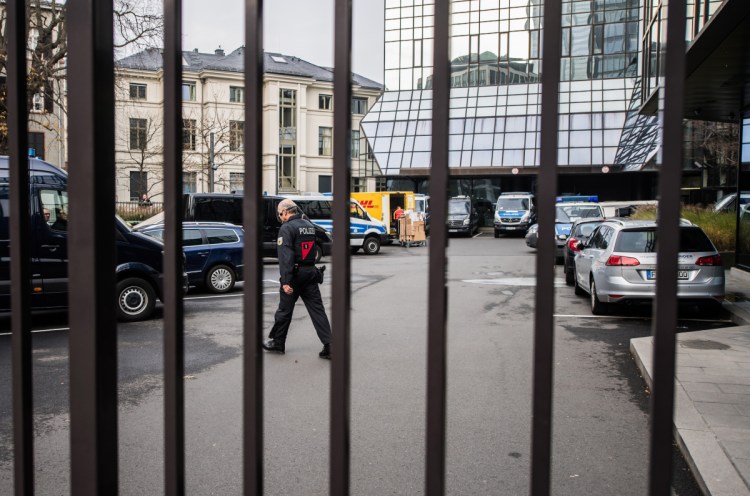BERLIN – German authorities raided the offices of Deutsche Bank in Frankfurt Thursday over money laundering allegations. The public prosecutor’s office in Frankfurt am Main said that about 170 officials were involved in searches at the business premises of the Deutsche Bank.
The investigation is directed against two employees and other individuals who have so far not been identified. The public prosecutor’s office in Frankfurt confirmed that the investigation was based on details included in the so-called Panama Papers and Offshore Leaks, a collaborative investigation between the International Consortium of Investigative Journalists and other media outlets that revealed money laundering practices across the globe.
“Numerous business documents” were obtained during the raid, the prosecutor’s office said.
“After an evaluation of the so-called ‘Offshore Leaks’ and ‘Panama Papers’,” Frankfurt public prosecutor’s office representative Nadja Niesen wrote in a statement, “the suspicion arose that Deutsche Bank AG was helping clients set up so-called ‘offshore companies’ in tax havens and that money connected to crimes was transferred to the accounts of Deutsche Bank AG.” Deutsche Bank failed to report those suspicious transactions, according to German prosecutors.
Prosecutors referred to a Deutsche Bank subsidiary registered in the British Virgin Islands. From there, 900 customers were allegedly served by the bank in 2016 alone.
Deutsche Bank did not immediately respond to a request for comment.
In their statement, prosecutors allege that there were “sufficient indications” for the suspicious nature of those transactions before the 2016 release of the Panama Papers. Yet, bank officials did not report them.
The Panama Papers was sparked by a dump of millions of financial documents from Panamanian law firm Mossack Fonseca & Co. The documents revealed the existence of 214,488 secret offshore entities, based on financial spreadsheets, copies of passports, emails and corporate records from 1977 to 2015. The leak to the German newspaper Süddeutsche Zeitung and the International Consortium of Investigative Journalists has prompted the prime minister of Iceland to tender his resignation and forced British Prime Minister David Cameron to acknowledge that he financially benefited from shares in an offshore account set up by his father.
As the breadth of the schemes became clearer, the ICIJ created a public, searchable database that revealed the names of offshore companies and individuals connected with them. A review of the documents by ICIJ and other media partners identified offshore companies created by Mossack Fonseca that were tied to at least 36 Americans accused of fraud or other serious financial misconduct.
Send questions/comments to the editors.



Success. Please wait for the page to reload. If the page does not reload within 5 seconds, please refresh the page.
Enter your email and password to access comments.
Hi, to comment on stories you must . This profile is in addition to your subscription and website login.
Already have a commenting profile? .
Invalid username/password.
Please check your email to confirm and complete your registration.
Only subscribers are eligible to post comments. Please subscribe or login first for digital access. Here’s why.
Use the form below to reset your password. When you've submitted your account email, we will send an email with a reset code.